Discovering the Cost of Pressure Washing Insurance
Introduction
Pressure washing businesses offer a vital service, but like any venture, they come with risks. From property damage to bodily injuries, unforeseen accidents can happen. That’s where pressure washing insurance steps in to protect business owners from financial liabilities. But how much does pressure washing insurance cost? In this guide, we’ll delve into the intricacies of pressure washing insurance pricing, shedding light on what factors influence costs and how to secure the best coverage for your needs.
Definition of pressure washing insurance
Pressure washing insurance is designed to address the specific risks inherent in pressure washing activities, offering coverage for liabilities stemming from property damage or bodily injury during operations. Tailored to the nuances of the industry, this type of insurance safeguards pressure washing companies against unforeseen incidents, ensuring financial protection and peace of mind for both the business and its clients.
Importance of pressure washing insurance
Pressure washing insurance is indispensable for business owners in this sector as it shields their assets, reputation, and financial stability from potential risks such as lawsuits and property damage claims. Comprehensive coverage provides a safety net against liabilities stemming from their operations, ensuring peace of mind and continuity of business operations.
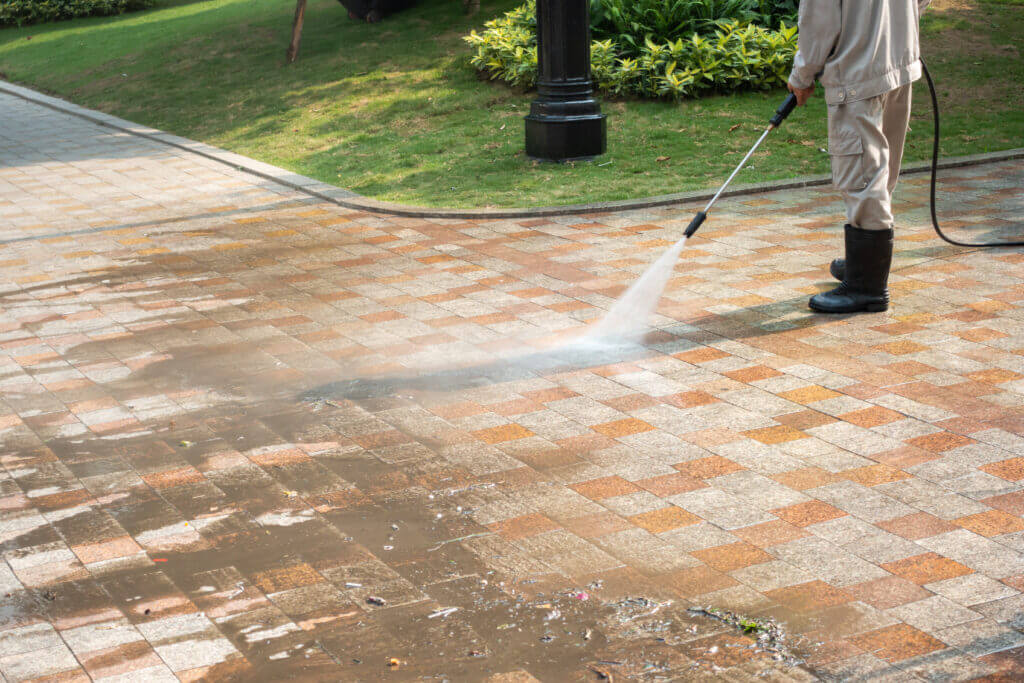
Understanding Pressure Washing Insurance
Pressure washing insurance encompasses various types of coverage tailored to the unique risks associated with this industry. From general liability insurance to property damage coverage and workers’ compensation, these policies provide financial protection against accidents, property damage claims, and legal expenses.
Coverage options
- Liability Coverage: This protects against claims that arise from third-party bodily injury or property damage caused during pressure washing activities. For instance, if a passerby is injured or their property is damaged due to the pressure washing process, liability coverage would help cover the associated costs and legal fees.
- Property Damage Coverage: This covers any damage caused to clients’ property or equipment as a result of the pressure washing process. For example, if a pressure washer inadvertently damages a client’s fence or outdoor furniture, property damage coverage would help cover the repair or replacement costs.
- Worker’s Compensation: This provides coverage for injuries or illnesses sustained by employees while they are on the job. If a pressure washing employee suffers an injury, such as slipping on a wet surface or being exposed to harmful chemicals, worker’s compensation coverage would assist in covering medical expenses and lost wages.
- Equipment Coverage: This protects pressure washing equipment against damage, theft, or loss. Pressure washing equipment can be expensive to repair or replace, and equipment coverage ensures that any damage, theft, or loss is financially covered, minimizing the financial impact on the business.
Factors influencing insurance costs
- Business Size and Revenue: Larger pressure washing businesses with higher revenue may face higher premiums. This is because they typically have more significant exposure to risk, including more extensive operations, more excellent equipment value, and potentially higher liability.
- Location and Jurisdiction: Insurance costs can vary significantly based on geographic location and local regulations. Businesses operating in areas prone to natural disasters or with higher crime rates may face higher premiums due to increased risk.
- Type of Pressure Washing Services Offered: The nature of the pressure washing services offered can impact insurance premiums. Specialized services such as high-rise building washing or industrial equipment cleaning may involve higher risks, leading to higher premiums.
- Claim History and Risk Factors: A pressure washing business’s claim history and risk factors play a crucial role in determining insurance costs. Businesses with a history of frequent claims or engaged in risky practices, such as using harsh chemicals or inadequate safety measures, may face higher premiums.
- Safety Protocols and Training: Insurance providers often consider a business’s safety protocols and employee training when calculating premiums. Pressure washing businesses with comprehensive safety measures in place, regular equipment maintenance, and well-trained staff may qualify for lower premiums due to reduced risk of accidents and liabilities.
- Coverage Limits and Deductibles: The level of coverage and deductibles chosen by a pressure washing business can directly impact insurance premiums. Opting for higher coverage limits or lower deductibles typically results in higher premiums. In comparison, lower coverage limits or higher deductibles may reduce premiums but increase out-of-pocket expenses in the event of a claim.
- Business Stability and Reputation: Insurance providers may assess a pressure washing business’s stability and reputation when determining premiums. Established businesses with a track record of financial stability and positive customer feedback may be perceived as lower risk and could qualify for lower insurance rates.
Cost Analysis of Pressure Washing Insurance
Average premiums and deductibles
Pressure washing insurance premiums can fluctuate significantly due to variations in coverage limits, deductible amounts, and the insurer’s perception of risk factors such as the equipment used, the types of surfaces being cleaned, and the frequency of operations. Insurers assess these factors to determine the level of risk associated with providing coverage, leading to differing premiums based on the perceived level of exposure to potential claims.
Comparison of insurance providers
Comparing quotes from multiple insurance providers allows business owners to evaluate different coverage options and pricing structures, ensuring they select the most suitable policy for their needs. This practice not only helps in securing comprehensive coverage but also aids in cost optimization, ultimately safeguarding the business against potential risks while maximizing financial efficiency.
Additional costs and fees
Aside from premiums and deductibles, policyholders may encounter supplementary expenses like administrative fees, which cover the cost of managing their insurance plans, or charges for optional coverage enhancements, offering additional protection beyond the basic policy terms and conditions. These additional costs contribute to the overall financial considerations individuals must weigh when selecting and managing their insurance coverage.
Cost-saving strategies
Business owners have the opportunity to lower insurance expenses by bundling multiple policies together, which often results in discounted rates from insurers. Additionally, implementing effective risk management practices and reassessing coverage limits can further mitigate risks and consequently reduce insurance premiums, offering businesses potential cost-saving strategies.
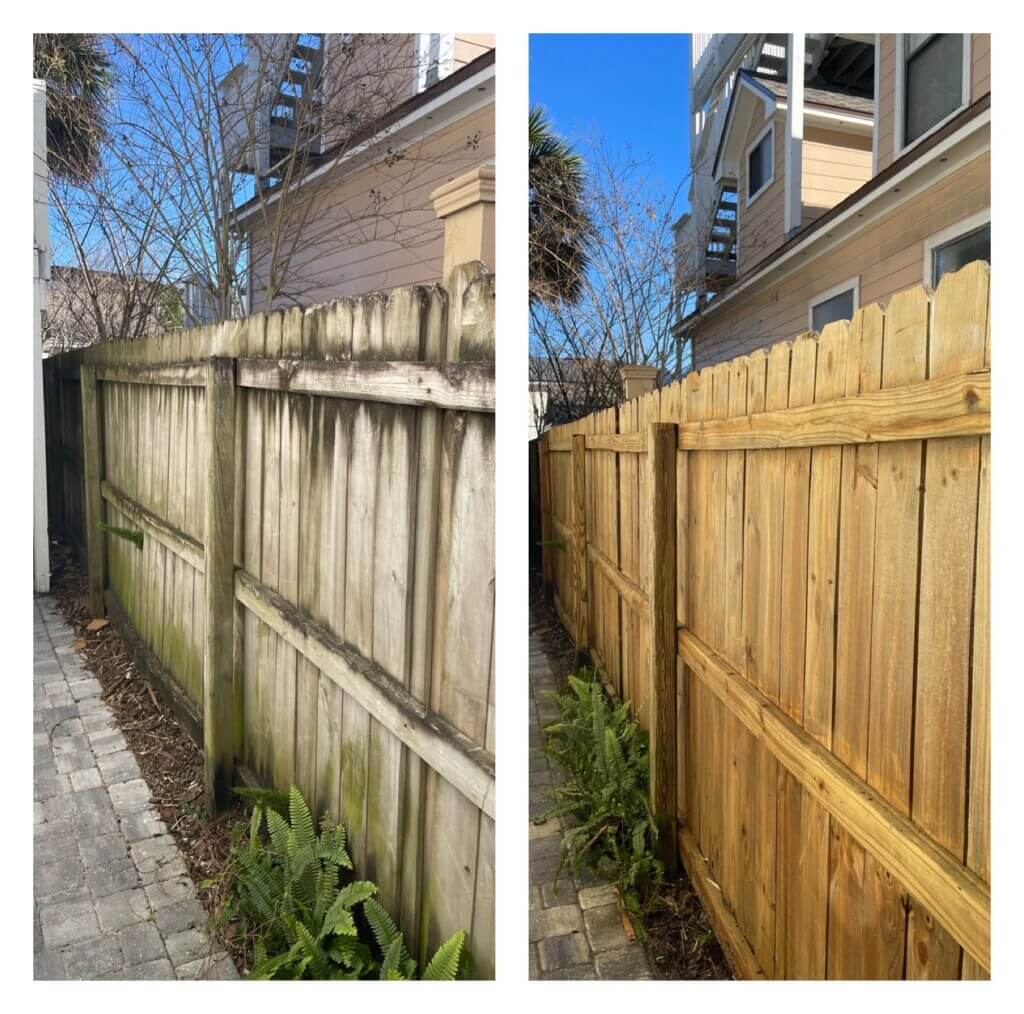
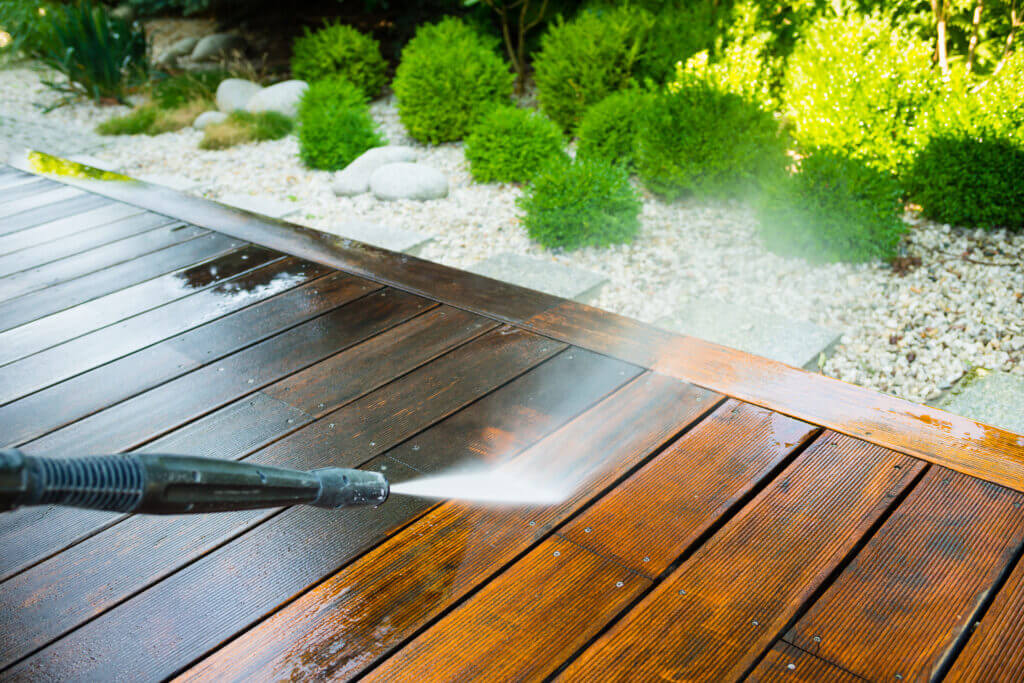
Obtaining Pressure Washing Insurance
Researching insurance providers
It’s crucial for business owners in the pressure washing industry to conduct thorough research into insurance providers with a proven track record of reliability and experience specifically tailored to their industry needs. By selecting reputable insurers with expertise in pressure washing, business owners can ensure they receive comprehensive coverage and reliable service in the event of any unforeseen incidents or liabilities.
Requesting quotes and proposals
Requesting quotes from multiple providers enables business owners to gain insight into the range of coverage options available in the market and allows them to evaluate different pricing structures. This approach empowers business owners to make informed decisions by comparing various aspects of coverage and pricing to ensure they find the most suitable insurance solution tailored to their specific needs.
Understanding policy terms and conditions
Carefully examining the terms, exclusions, and limitations of a policy is crucial for gaining a comprehensive understanding of the extent of coverage and any possible responsibilities one may have. This thorough review helps individuals or entities make informed decisions about their insurance needs and ensures they are adequately protected against potential risks.
Customizing coverage to suit business needs
Tailoring coverage to specific business operations and risks involves customizing insurance plans to address the unique needs and potential liabilities of a particular enterprise, thereby ensuring comprehensive protection against relevant threats. This approach not only prevents overpayment for unnecessary coverage but also maximizes the value of insurance by aligning it closely with the real-world risks faced by the business.
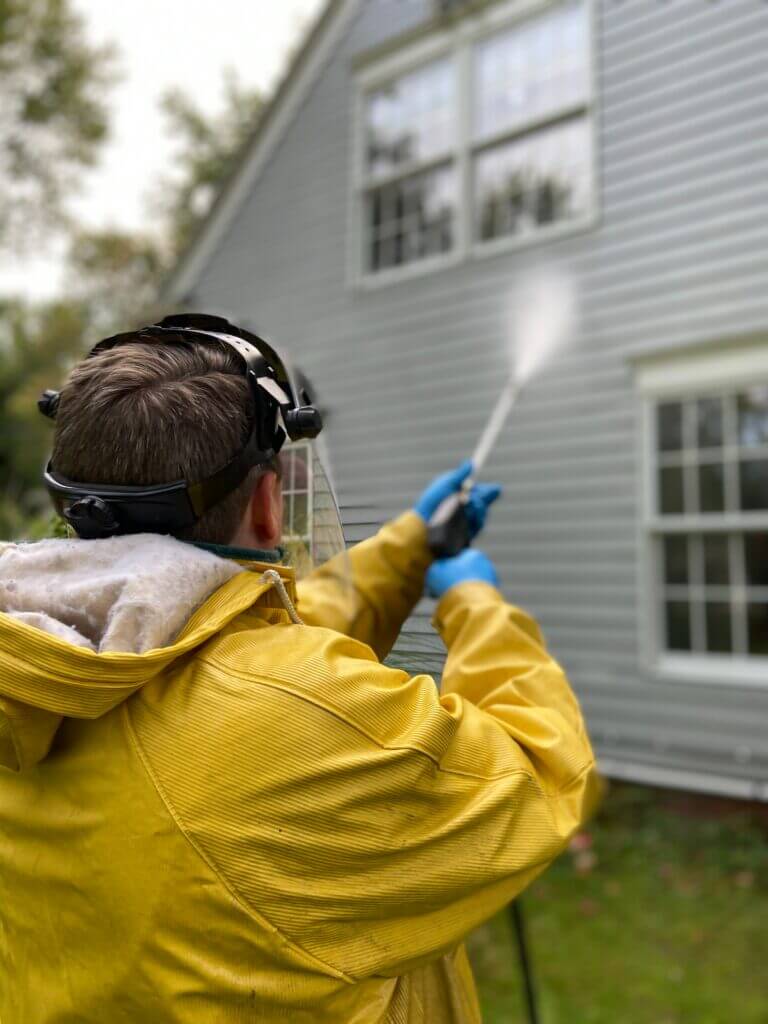
Importance of Adequate Coverage
Mitigating financial risks
Adequate insurance coverage serves as a vital safeguard, shielding individuals and businesses from the devastating financial repercussions that may arise from lawsuits, claims, or property damage. By providing a safety net against unforeseen liabilities, comprehensive insurance not only offers peace of mind but also ensures financial stability in the face of unexpected events.
Compliance with legal requirements
Maintaining appropriate insurance coverage is crucial for adhering to legal regulations as it ensures that businesses fulfill mandatory requirements imposed by regulatory bodies. Additionally, it helps uphold contractual obligations by providing financial protection against potential liabilities, mitigating risks, and fostering trust between parties involved in agreements.
Protection against liabilities and lawsuits
Insurance for pressure washing operations provides essential financial protection by covering liabilities that may arise from accidents, injuries, or property damages occurring during operations. This safeguard significantly mitigates the potential for expensive legal battles and financial losses, offering peace of mind to both pressure washing businesses and their clients.
Safeguarding business reputation and credibility
Insurance coverage serves as a tangible assurance of a business’s commitment to mitigate risks, instilling confidence in clients and stakeholders regarding the company’s preparedness to handle unforeseen circumstances. By demonstrating a proactive approach to safeguarding assets and liabilities, businesses can foster a reputation for reliability and professionalism, thereby solidifying trust and credibility within their respective industries.
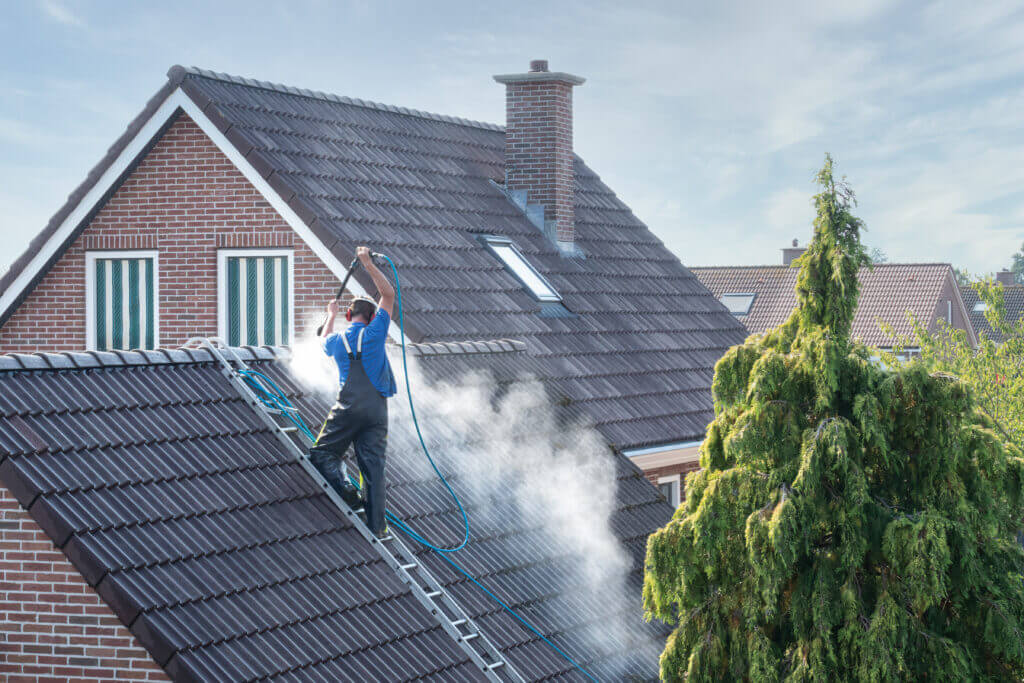
Navigating Insurance Options
Comparing Quotes from Multiple Providers
By gathering quotes from various insurance providers, you gain insight into the range of coverage options, premium rates, and policy terms available in the market. This comprehensive comparison enables you to make an informed decision, maximizing the value of your insurance investment while meeting your specific needs and budget constraints.
Customizing Coverage to Your Needs
By collaborating closely with insurance agents, businesses can pinpoint their most significant risks and tailor coverage to address them specifically, ensuring adequate protection while minimizing unnecessary expenses. This proactive approach not only optimizes costs by avoiding over-insurance but also ensures that the coverage aligns precisely with the unique needs and operations of the business, enhancing overall risk management effectiveness.
Seeking Professional Guidance
Navigating the intricate landscape of insurance can pose significant challenges for small business owners, particularly in industries like pressure washing, where risks can vary widely. Seeking guidance from insurance brokers or consultants who specialize in the pressure washing sector can provide invaluable insights and ensure that business owners make well-informed decisions regarding their coverage options to mitigate potential liabilities.
How Much Is Pressure Washing Insurance?
The cost of pressure washing insurance fluctuates based on factors such as the scale of your business, where it operates, the extent of coverage required, and the level of risk associated with your operations. Generally, annual premiums typically fall within the range of $500 to $3,000, with many businesses finding themselves paying approximately $1,000 to $1,500 for fundamental coverage.
FAQs (Frequently Asked Questions)
What Does Pressure Washing Insurance Cover?
Pressure washing insurance typically covers general liability, property damage, bodily injury, and, in some cases, pollution liability. It protects your business from financial losses arising from accidents, damages, or legal claims.
How Can I Lower My Pressure Washing Insurance Costs?
You can lower your insurance costs by maintaining a clean claims history, implementing robust risk management practices, choosing higher deductibles, and comparing quotes from multiple insurers to find the most competitive rates.
Do I Need Workers’ Compensation Insurance for My Pressure Washing Business?
In many states, workers’ compensation insurance is mandatory for businesses with employees. Even if you operate as a sole proprietorship, investing in workers’ compensation coverage can protect you from potential liabilities in case of employee injuries.
Are There Any Exclusions or Limitations in Pressure Washing Insurance Policies?
Yes, pressure washing insurance policies may come with exclusions or limitations, such as coverage restrictions for certain types of properties or activities. It’s crucial to review policy terms carefully and discuss any concerns with your insurance provider.
Can I Bundle Pressure Washing Insurance with Other Business Policies?
Yes, bundling your pressure washing insurance with other business policies, such as commercial auto or property insurance, can often result in cost savings through multi-policy discounts offered by insurers.
How Do I File a Claim with My Pressure Washing Insurance Provider?
In the event of an incident or accident, promptly notify your insurance provider and follow their instructions for filing a claim. Provide all necessary documentation, such as photos, incident reports, and witness statements, to support your claim.
Conclusion
Understanding how much pressure washing insurance costs and what factors influence premiums is essential for business owners in this industry. By exploring coverage options, customizing policies to your needs, and implementing risk management strategies, you can protect your business from financial losses and ensure peace of mind. Remember, investing in comprehensive insurance coverage is an investment in the long-term success and stability of your pressure washing business.
